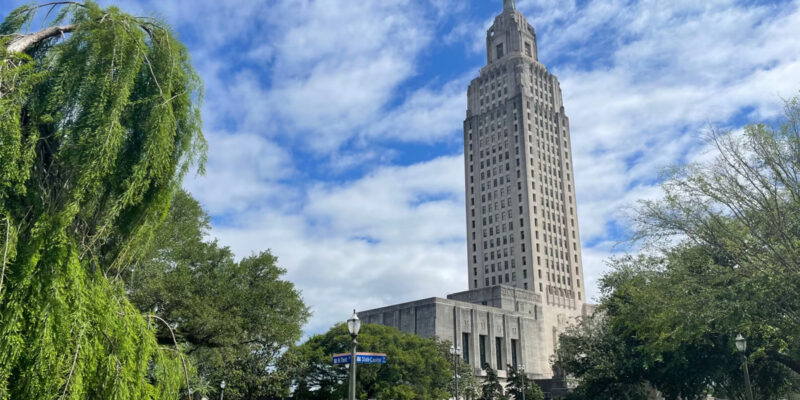A bill set for consideration in this spring’s Louisiana legislative session aims to counter harmful federal policies that divert state land use toward low-priority purposes.
HB 4 by Republican state Rep. Chuck Owen would allow individual parishes to have a final say over carbon capture sequestration within their boundaries, subject to a popular veto. The governing authority may disapprove of a sequestration siting, but if it approves a referendum may be called by 15 percent of registered voters to hold a vote disapproving. Either way, local interests will determine whether such projects get built.
That’s exactly as it should be. The only reason these underground carbon storage facilities are built—aside from ideologically-based faith—is the artificial incentives baked into the federal tax code. Understanding how this scheme operates makes clear why Louisiana finds itself in this position and why HB 4 is necessary.
Carbon capture, whether as part of industrial processes that produce carbon dioxide or through direct air capture from sources like vehicle exhaust, rests on the premise that removing CO₂ from the atmosphere benefits society. But this ignores the fact that higher carbon dioxide levels actually produce economic and social benefits. Climate alarmists—despite fossil fuel use’s ongoing global rise and the failure of any meaningful energy transition—have latched onto carbon capture as a supposed compromise. They hope to pair it with renewables to solve the fundamental flaws of green energy: intermittency and prohibitive cost.
The problem is that capture itself is prohibitively expensive. Even with generous federal government subsidies, the only marginally viable use case is capturing emissions from industrial manufacturing. That’s the expensive and entirely cost-ineffective side of the equation, which nevertheless is pursued because there are some commercial applications for it and/or an ideological imperative exists that it is one avenue to prevent the mythical catastrophic anthropogenic global warning scenario that exists as an article of faith among alarmists but which at present exists without any quality scientific basis to it. Unfortunately, these fanatics make a lot of noise and cow business into pursuing these kinds of wasteful projects.
That brings us to the other half of the equation: storage. Unlike capture, storage can be profitable for landowners—especially in Louisiana, given the state’s geology, topography, and concentration of industries producing carbon and pipelines to transport it. But storage comes with serious risks, including potential leaks from transport pipelines or underground reservoirs, which could have severe environmental and public health consequences. The economic advantages of these projects for a community might be outweighed by their low-probability but high-cost dangers. And since there’s no actual climate emergency, communities bearing these risks should have full control over whether to allow them.
Currently, Louisiana is one of just five states with complete control over permits for carbon storage wells. But it has no control over federal tax credits that are driving this misallocation of resources that distort the marketplace into throwing money around for far more storage than the unsubsidized market would bear. Ideally, these credits would be rolled back through the budget reconciliation process—by tightening eligibility, reducing their value, and eliminating refundability. But given the GOP’s slim congressional majorities, such reform appears unlikely for now.
In general, government should avoid interfering in voluntary private transactions. But in this case, that its thumb is already on the scales justifies an exception. Hysteria-driven policy is bad policy, and HB 4 serves as a necessary counterbalance.
Advertisement
Advertisement

